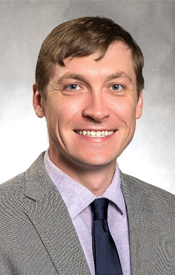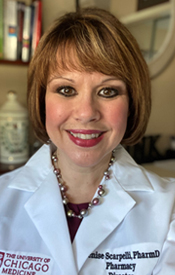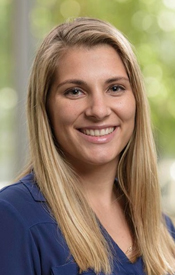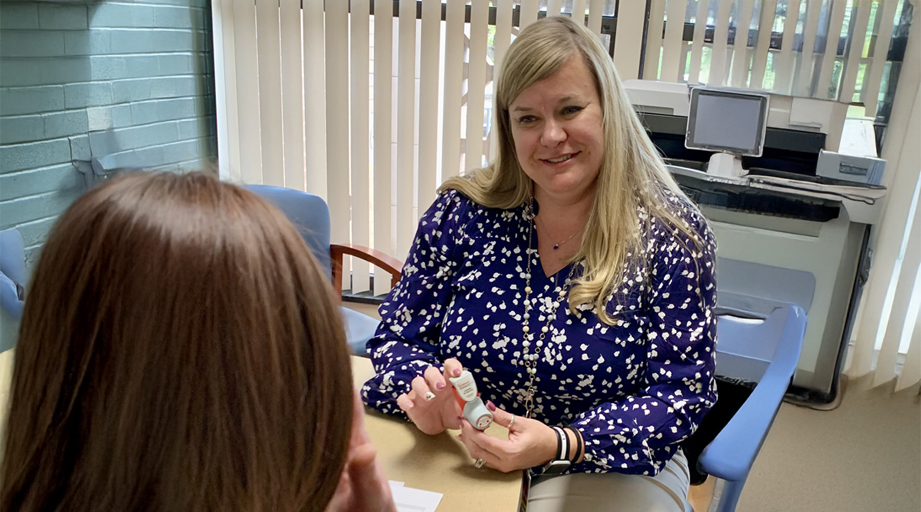
Less than a decade into their use, cell and gene therapies offer life-changing treatments to a growing number of patients. But health systems have yet to establish a definitive blueprint for managing and paying for these ultra-high-cost therapies.
That’s why pharmacy must ramp up planning for the challenges posed by advanced therapies — including operational needs, payment polices, ethical use, and patient access, according to presenters at ASHP’s first-ever Summit on Advanced Therapeutics at Pharmacy Futures 2025.

“We’re trying to get ahead of the issue and develop the knowledge, the educational tools, and the infrastructure to support these therapies before the 11th hour,” said Kevin Zinchuk, pharmacy manager for investigational drug services at Brigham and Women’s Hospital, who is moderating the summit’s spotlight session, Implications for Pharmacy Practice and Medication-Use Policy. “We’re talking about new gene therapies that have been implemented in the past 12 months. This is all happening quickly, and we’re trying to share ideas at an advanced pace.”
Ultra-high-cost therapies typically target orphan and rare diseases, often costing millions of dollars per patient for one-time treatments. The Food and Drug Administration has approved 21 cell and gene therapy products for certain cancers, blood disorders, and other conditions; many more therapies are in development for rare diseases and chronic illnesses.
In multiple summit sessions, presenters will discuss how their institutions have been working with the innovative therapies — from interdisciplinary committees that review patient outcomes used in payment negotiations, to the technicians who collect patients’ cellular material and get it ready for first-class flights to the drug manufacturers.
Zinchuk noted that presenters in his session represent institutions that have been early adopters of the treatments.
“We’ve got a really great lineup of leaders who work at large institutions and have basically walked the walk, and hopefully they can share some of these insights with the audience,” he said. “There are a lot of questions because there is really no standardized guidance or regulations on how to do this.”

That lack of uniformity also applies to payment. The University of Chicago, for example, has been offering CAR T-cell therapies for several years now and typically works with insurers on single-case agreements for the treatment, even if the health system is in-network for the patient’s plan, said Denise Scarpelli, vice president and chief pharmacy officer.
“You’re talking about therapies that are in the millions of dollars that we have to negotiate with each payor,” said Scarpelli.
Scarpelli is moderating a summit session called The Surge of Advanced Therapies: Financial Preparations for Patients and Health Systems. Presenters will discuss financial barriers for health systems that want to offer advanced therapies, as well as patient assistance programs.
Her institution has an interdisciplinary committee that meets every month and reviews patient referrals, tracks outcomes, and considers new therapies on the market. “It’s a lot of coordination, a lot of personnel,” she said. “But if you don’t have this coordination, it could bankrupt the system.”
Such a heavy front-end investment explains why the advanced therapies are largely limited to major academic medical centers, posing potential access problems for patients who live far from those facilities.
“I always think about how we can give patients access and make sure it’s affordable for them and the health system,’ said Scarpelli. “So a smaller hospital might elect not to carry these, but they need to help that patient find a system that does.”

Charlene Kabel, a clinical pharmacy specialist supervisor in oncology at Barnes-Jewish Hospital, is moderating Pharmacy, Laboratory, and Clinical Collaboration: Advanced Therapeutics from Bench to Bedside. Presenters will focus on one CAR-T product, she said, “essentially from the time of apheresis, all the way to sending (the cells) to the manufacturer, and then back to bedside delivery.”
That journey illustrates just how many challenges must be addressed, from patient scheduling to personnel training on safe handling of fragile products.
“This is a complicated process,” said Kabel. “It requires massive amounts of resources and infrastructure to be able to get these drugs to the patient.”








